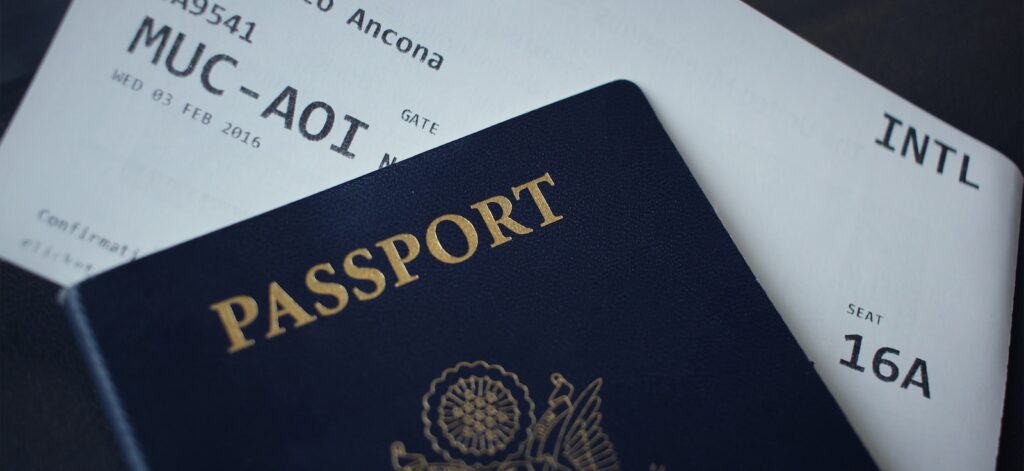Flexible Travel Dates and Off-Peak Seasons:
One of the most effective ways to trim down your vacation expenses is by being flexible with your travel dates. Airlines and hotels tend to offer lower rates during off-peak seasons. Whether it’s the serene beaches of Bali or the charming streets of Paris, adjusting your trip timing can lead to substantial savings. Keep an eye out for deals and discounts during shoulder seasons, when the weather is still pleasant, and the crowds have thinned.

Hunt for Flight and Accommodation Deals:
The digital age has made finding flight and accommodation deals easier than ever. Utilize meta-search engines and travel aggregator websites to compare prices across multiple platforms. Websites like Skyscanner and Kayak can help you find the best airfare, while Airbnb and Booking.com offer a range of budget-friendly lodging options. Don’t forget to set up fare alerts and monitor social media pages of airlines and hotels for flash sales and limited-time offers.

Consider Alternative Accommodation Options:
Hotels are not the only option when it comes to accommodation. Embrace the sharing economy by exploring vacation rentals, hostels, and even couchsurfing. These alternatives often provide a unique local experience at a fraction of the cost. Plus, many rentals come with a kitchen, allowing you to prepare your own meals and save on dining expenses.

Plan Your Itinerary Wisely:
A well-structured itinerary can make a significant difference in your overall vacation expenses. Research and prioritize free or low-cost attractions and activities at your destination. Many cities offer walking tours, museums with discounted admission days, and beautiful parks for relaxation. By planning ahead, you can make the most of your vacation without overspending.

Pack Light and Smart:
Packing efficiently can save you not only time but also money. Many airlines charge extra for checked bags, so packing light can help you avoid these unnecessary fees. Additionally, bring essential items like a reusable water bottle, snacks, and a travel adapter to avoid purchasing overpriced items on the go. Be sure to research baggage policies and guidelines to ensure a smooth airport experience.

Use Public Transportation:
Public transportation is often a cost-effective way to get around in a new city. Research local buses, trains, and subways to navigate your destination like a local. Many cities also offer multi-day transportation passes, which can provide unlimited access to public transportation and save you money compared to individual fares or rideshare services.

Dine Like a Local:
Sampling local cuisine is an integral part of any travel experience, but dining out for every meal can quickly add up. To save money, mix dining out with cooking your own meals or indulging in street food. Visit local markets and grocery stores to stock up on snacks and essentials. Don’t hesitate to ask locals for recommendations on affordable yet delicious eateries.

Embrace Travel Rewards and Loyalty Programs:
Travel rewards and loyalty programs can be a goldmine for savvy travelers. Sign up for airline and hotel loyalty programs to earn points that can be redeemed for future flights or stays. Many credit cards also offer travel rewards, cashback, or miles for every purchase. Make sure to compare different programs and choose the ones that align with your travel preferences.

Skip the Souvenirs and Opt for Memories:
While it’s tempting to splurge on souvenirs, these expenses can quickly add up and take valuable space in your luggage. Instead, invest in experiences that create lasting memories. Capture breathtaking photos, interact with locals, and immerse yourself in the culture. These intangible souvenirs will stay with you long after you return home.

Travel Insurance: Protect Your Investment:
Last but not least, don’t underestimate the importance of travel insurance. Unexpected events like flight cancellations, medical emergencies, or lost baggage can disrupt your vacation and your budget. Investing in comprehensive travel insurance provides peace of mind and can potentially save you from significant financial losses.

Embarking on a memorable vacation doesn’t have to drain your bank account. By incorporating these 10 money-saving strategies into your travel plans, you can explore new destinations, indulge in local culture, and create cherished memories—all while staying within your budget. Remember, with a little research, flexibility, and smart planning, you can make your dream vacation a reality without breaking the bank.
















